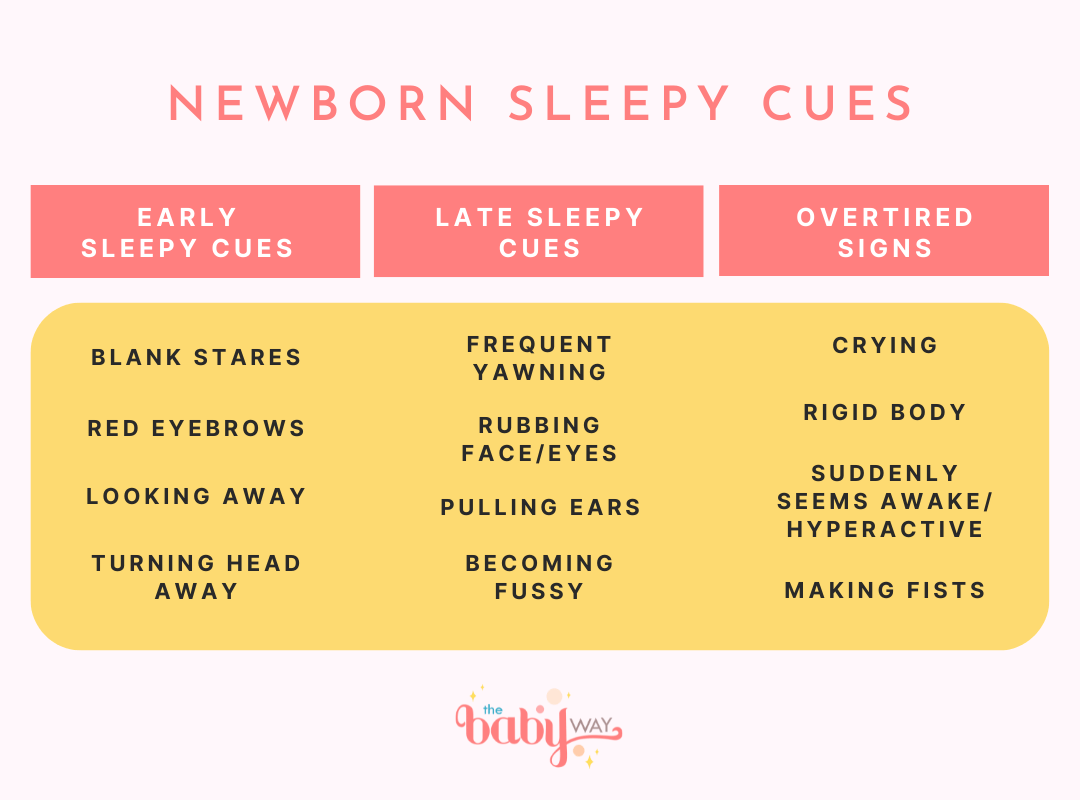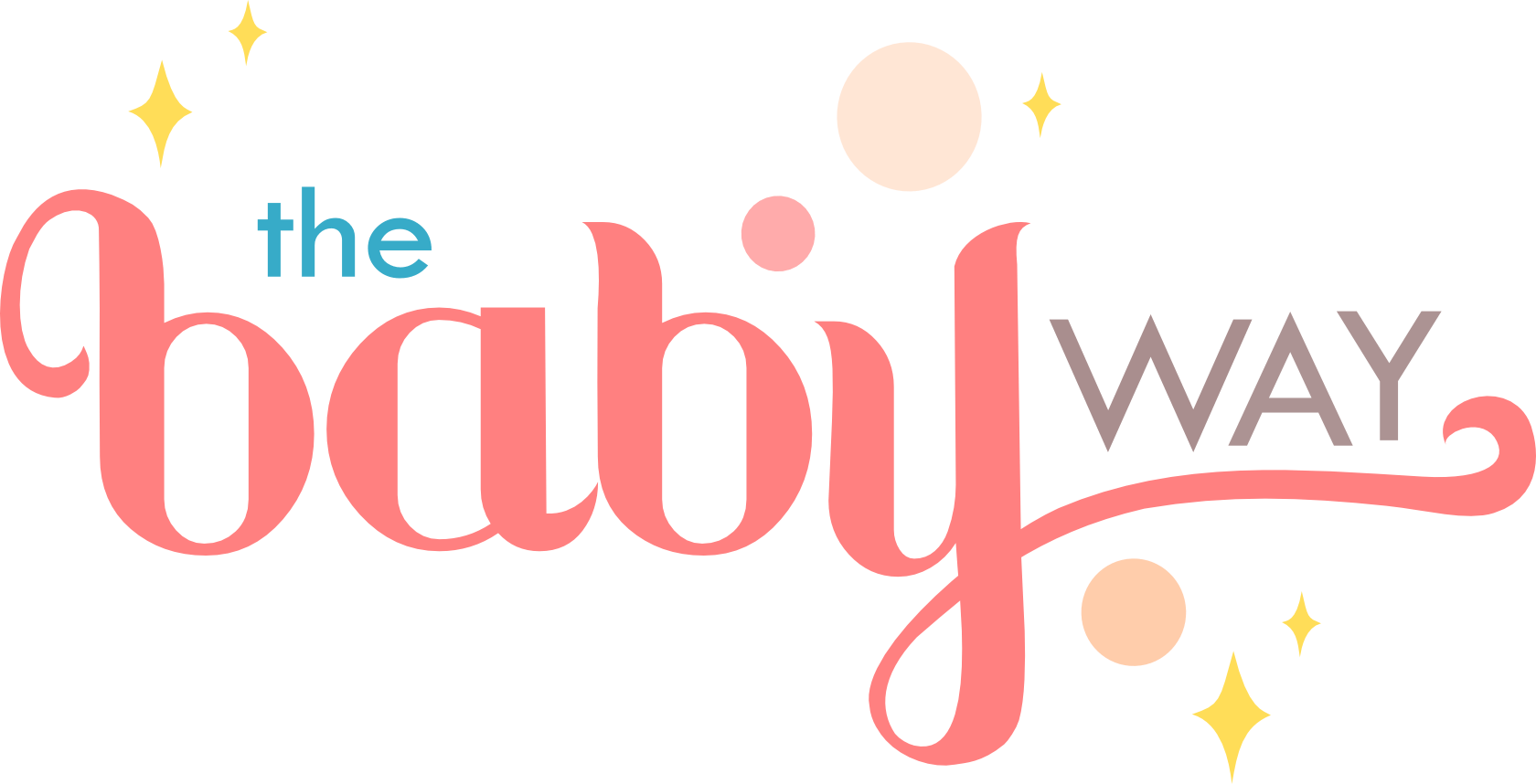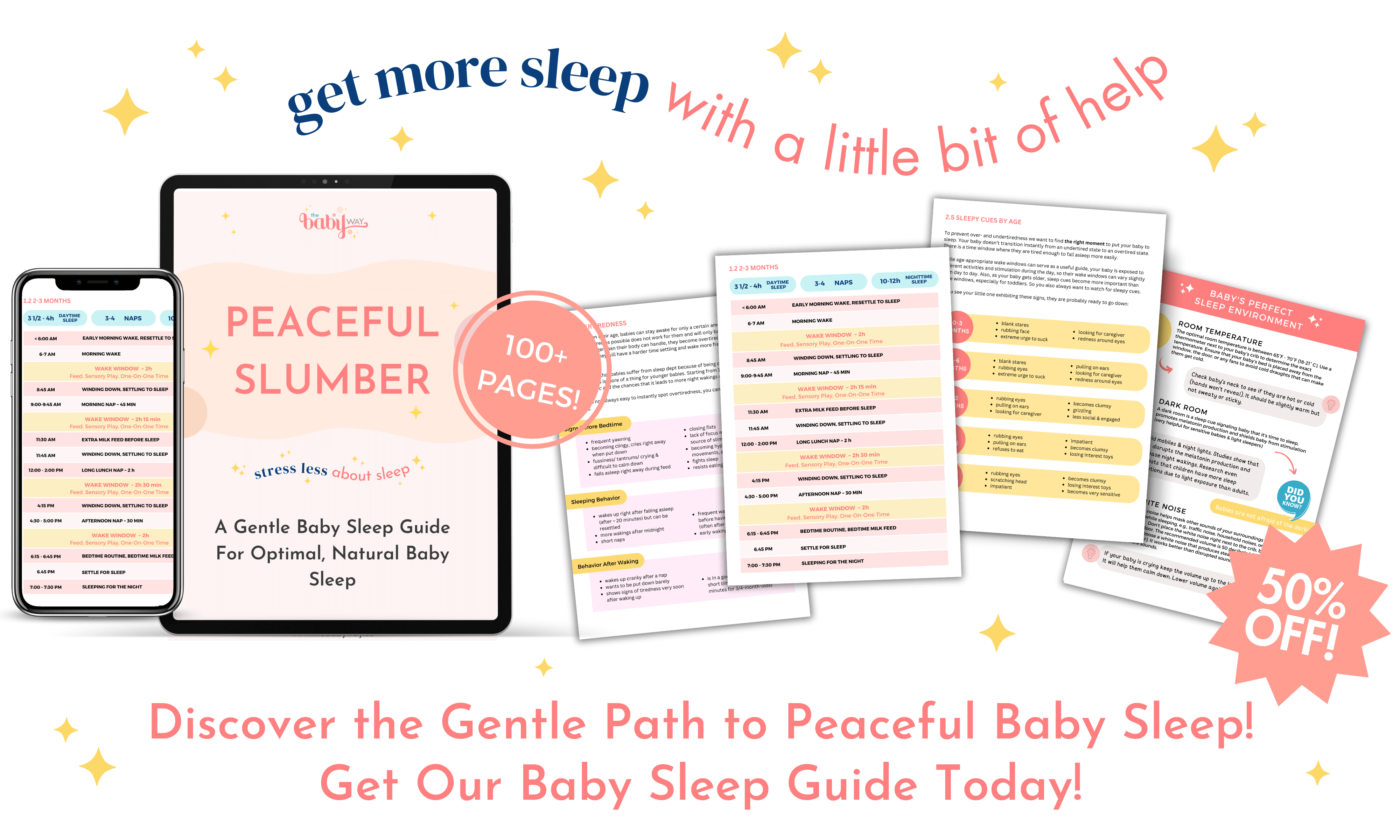Wouldn't it be great if your baby could just tell you that they need to sleep? Well, they actually can...through sleep cues. Learn everything about baby sleep cues and how to get your newborn baby to fall asleep fast and peacefully.
Ok, I really don't want to exaggerate, but from the moment my first child was born, I never really knew when she had to sleep.
The first few days, she slept more or less all day. She would fall asleep on the breast practically every time I nursed her. But starting from day 10, I noticed more changes in her sleep. Her reflux became more intense, and I couldn't feed her to sleep anymore. She started napping for short periods. She would wake the minute I put her down, and she appeared to be more awake between naps, even if it was just 15-20 minutes. She was definately out of the fresh-born-baby-sleep phase.
With all these sudden changes happening, I was always unsure when I should put her to sleep. Sometimes I thought she was too tired, and sometimes I thought she couldn't be tired because she had just woken up. According to my husband, she was always hungry and needed the breast. But that's another story.
Anyway, I couldn't really figure out when to put her to sleep. That's when I learned about sleepy cues.
Even though our little ones cannot talk (except when they are sleeping and grunting nonstop, keeping you awake), they can signal very effectively that they are ready for sleep. They can do all of that with sleepy cues.
So in this article, we will learn about the most common baby sleep cues, how to identify them and what to do if you're still having trouble getting your baby to sleep.
This article covers:
What Are Newborn Sleepy Cues?
Sleep cues are repetitive behaviors or patterns of your baby that signal that they are ready to sleep. Early sleep cues will tell you that your baby might need a nap soon, while late sleep cues are signs that they are slowly getting too tired without being overtired yet.
Why Are Sleep Cues Important?
Sleep cues are important because they will help you determine the right time to put your baby to sleep. Because when it comes to baby sleep, timing is key!
You see, putting a baby to sleep is not just putting a baby to sleep.
If you put down your baby too early, they can take a long time to settle to sleep or wake after only one sleep cycle. If you put your baby to bed too late, they might be overtired and crying and, as a result, sleep worse overall.
Putting a baby to sleep is not just putting a baby to sleep.
Putting down your baby at the right time will not only make them fall asleep easier and faster, but they will also sleep better and for a longer period. Now, figuring out this sweet spot may sound tricky, but once you understand sleep cues and how they work, it will be much easier.
Most Common Newborn Sleep Cues
If you would have to think about a sleep cue totally unrelated to babies, the first thing that would probably pop into your head is yawning, right?
Sounds really simple. But you and I, we both know it is not that simple. In the baby sleep world, yawning actually means run, mom run, get that baby to sleep ASAP.
Ok, I am slightly dramatizing here, but sleep cues for newborns are a little bit different from what we know from us adults.
As mentioned before, there are early sleep cues (yawning is NOT one of them) and late sleep cues (yawning is definitely one of them). And there is, of course, an overtired baby.
When your baby gets more and more tired, the sleepy cues get more intense. They can go from staring away to being fussy and finally crying.
While sometimes sleep cues vary from baby to baby, there are sleep cues that are very common for newborn babies:

Try to catch your baby's early sleep cues to prevent them from becoming overtired. Once you notice those early signs, you can slowly start to get them ready for sleep. A short nap or bedtime routine is completely enough because your baby is too young to handle a lengthy bedtime routine. Spending too much time on your routine can lead to an overtired baby.
Also, it's not a big deal if there is no time left for a bath. Newborns do not need a bath every day since their skin is very sensitive. Skip the bath and just do a little cleanup.
What If I Don't See Any Sleep Cues?
Your baby will most likely not show all the sleep cues in the list above. Sometimes children even have their very own sleep cues. I have seen babies rub their faces against their mom's shoulder or toddlers playing with their hair. You will learn your baby's sleep cues over time.
My baby pulled her ears twice, yawned once, and looked away for exactly 10 seconds. I guess she is ready to nap right now!
If you still struggle with sleep cues, you can use wake windows to help you figure out when your baby might need to sleep. A wake window is simply the time your baby is awake between naps. As they grow, wake windows become longer. The idea behind wake windows is that your baby builds up enough sleep pressure, so they sleep better overall. Too low sleep pressure can lead to short naps, early wakings, or more night wakings. On the other hand, too long wake windows can lead to an overtired baby.
While sleep needs always vary from baby to baby, most babies fit into a typical range of how long they can stay awake according to their age. Therefore, knowing your baby's age-appropriate wake window will also help you determine the best time to put baby to sleep.
What To Do If My Newborn Is Overtired
Don't panic! I repeat: don't panic!
It feels like overtiredness is every parent's (and sleep consultant's) nightmare. But you will probably deal with it more than once, and it will accompany you until toddlerhood, just when you thought you didn't have to care about it anymore. It's just part of baby sleep!
And while babies usually don't go from "I am slightly tired" to "I am completely overtired, and I will crash this house", it can happen.
Here are some typical signs your baby is overtired:
- crying
- difficult to calm down/settle
- becoming hyperactive, increased body movement
- doesn't want to be put down
- making fists
Hearing your baby cry or desperately trying to get them to sleep can be drowning. But it happens, even to the best sleepers.
So when you know your baby is overtired, the only thing you can do is to hold them and try to get them to sleep as soon as possible.
If you want to find out more about overtired babies and how to get them to sleep, make sure to check out the article below!
What If My Newborn Shows Sleepy Cues Before Being Awake For A Full Wake Windows?
Wake windows can be a very helpful tool for determining the right time for your baby to sleep. They can help lengthen naps or reduce the amount of night wakings. But when it comes to wake windows, you should also consider your baby's age.
I don't advise parents to force their 1-month old baby to stay awake for any "recommended" amount of time. Your little one is still so young, and there is no consistency in their sleeping behavior. They still need to fully develop their circadian rhythm, which can take up to 3 months. Only then will your baby be able to go through a bit more routine and establish regular sleep patterns. You will even notice how your baby develops a sleeping routine just like that.
Until then, focusing on wake windows for such young babies makes no sense. I even believe that it can increase your anxiety around your baby's sleep because you are fighting against nature.
If you have a baby younger than 2 months, let sleep cues lead the way. If your baby shows sleepy signs soon after waking up, wait for 5-10 minutes and if they continue to show tired signs, then get them to sleep even if they were not awake for a whole awake window.
I would only start to watch wake windows when baby hits at least 2 months. Most babies can stay awake for 45-90 minutes at this age. If your baby shows tired cues before hitting a full wake window, you can slowly increase the awake time by 5 minutes daily. Your baby still needs to get used to being awake for a "longer" time.
Trial And Error
I see so many parents of newborns desperate for answers about their baby's sleep.
But remember, getting the hang out of your newborn sleep cues is a process of trial and error. Be kind to yourself and remind yourself that you have only been a mom for such a short time. There is no way that you can figure out this baby sleep thing that has successfully kept millions of moms and sleep consultants busy in one single day (or after reading one single blog post).
This is a process, and you will learn along the way. Observe how long it takes for your baby to fall asleep and how long they are sleeping. After a while, you will learn your baby's sleep cues, how they fall asleep the easiest and the best awake times. No mother got into motherhood trained about all this sleep stuff!








